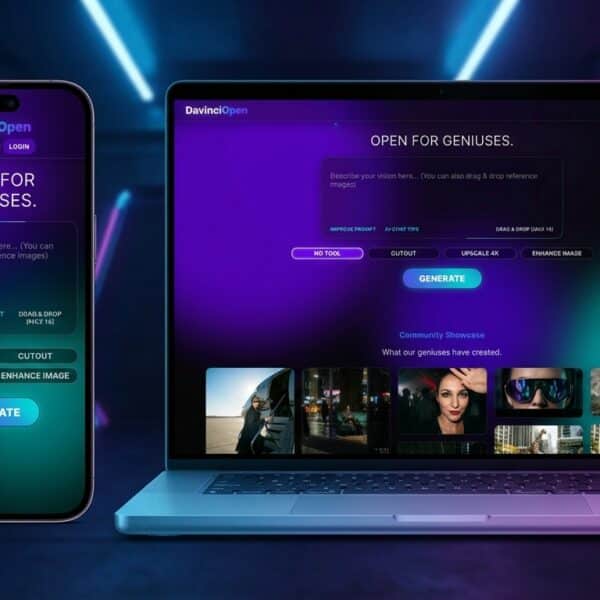In today’s cutthroat job market, the power to attract top talent rests on the uniqueness and clarity of our employer value proposition (EVP). A well-thought-out EVP goes beyond a simple perks list. It’s the core of what we promise our employees. By showcasing our distinct cultural, developmental, and financial benefits, we offer a robust package. This package promises growth, balance, and appealing rewards.
This approach doesn’t just draw in potential employees. It also builds dedication and happiness among our current team members. Our hiring strategy’s heart is our commitment to communicate the genuine recruitment value we bring. This step is crucial for standing out in the job market. Weaving the EVP into all human resources activities ensures our promises are met with real experiences. These resonate with individuals aiming high.
Key Takeaways
- An effectively crafted EVP can significantly enhance our ability to attract and retain exceptional talent.
- Emphasizing growth opportunities, work-life balance, and remuneration are critical components of a compelling EVP.
- Our EVP is pivotal in differentiating us from our competitors and positioning us as an employer of choice.
- Aligning our EVP with our organizational culture strengthens our recruitment and retention strategies.
- A clear EVP is integral to building a strong brand identity that resonates with both current and prospective employees.
Understanding the Foundation of an EVP
At the heart of successful companies is a solid Employer Value Proposition (EVP). This key component is vital for effective talent management and company growth. It represents what an organization offers its employees for their commitment and expertise. Building an EVP is fundamental, aligning with a company’s mission and aims, enhancing its appeal to exceptional talent.
Defining the Employer Value Proposition
Creating an EVP means outlining the unique benefits and opportunities a company offers. This can include career advancement, compensation, benefits, work-life harmony, and the essence of company culture. These aspects are crafted to attract, encourage, and keep employees who greatly benefit the organization’s objectives. It transcends mere benefits, influencing employees’ daily lives and long-term career paths.
The Importance of Employer Value Proposition in Today’s Market
In today’s fierce job marketplace, the role of an employer value proposition is crucial. A compelling EVP sets a company apart and is essential for attracting top talent. It affects not just recruitment but also employee commitment and retention. Companies with a distinct, appealing EVP can build a strong brand and a dedicated workforce, key to business triumph.
| Component | Benefits to Employees | Impact on Organizational Growth |
|---|---|---|
| Competitive Compensation | Financial security and satisfaction | Attracts high-caliber candidates |
| Career Development Opportunities | Professional growth and skill enhancement | Drives innovation and retains top talent |
| Positive Work Culture | Enhanced job satisfaction and team cohesion | Improves employee engagement and productivity |
Investing in a structured EVP boosts a company’s appeal and impacts business success and cultural harmony. Endorsed by resources like advising.work, the strategic importance of a strong EVP is clear. It connects deeply with a company’s capability to flourish in a demanding and complex market.
Key Elements of a Strong Employer Value Proposition
In crafting a compelling Employer Value Proposition (EVP), intertwining the core elements of EVP with company culture is essential. This approach ensures the EVP resonates deeply. It appeals to both potential and current employees. This is achieved by basing it on a genuine understanding. And ensuring alignment with what the company truly stands for.
Aligning EVP With Company Culture
Aligning an EVP with company culture goes beyond simple matches of words to actions. It requires embedding organizational values into the employment experience. This creates an environment where employees feel deeply connected. They feel valued, boosting both retention and satisfaction.
This alignment also acts as a magnet. It attracts individuals with similar values and visions. This naturally cultivates a cohesive work environment.
Identifying Unique Employer Benefits
Creating a unique brand identity involves outlining and communicating unique employer benefits. These benefits vary widely. They can include wellness programs, flexible working conditions, or professional growth opportunities not offered by others. Offering such benefits distinguishes a company. It elevates its appeal as a premier workplace amid fierce competition.
An EVP’s success is tied to its perception and actualization within the organization. Ensuring benefits are meaningful and supportive of the mission and employee needs is key.
How an Effective EVP Attracts Top Talent
An effective EVP is crucial for drawing in employees, ensuring top talents opt for your organization. To understand its importance, we first delve into how a well-crafted EVP boosts recruitment successes.
The Link Between EVP and Recruitment Success
An effective EVP elevates a company’s appeal to potential hires. It’s more than just an attractive salary. It encompasses the company’s culture, growth possibilities, and extra perks.
A strong EVP can streamline recruitment, cutting down on time and expenses. It reshapes a company’s market image. Fundamentally, an EVP that attracts employees meets modern job seekers’ desires: purpose, development, and a welcoming workplace.
Case Studies: Companies with Successful EVP Strategies
Some companies excel with their EVP strategies, drawing top talent and boosting employee contentment and loyalty. Below are examples that highlight these successes:
| Company | Key Features of EVP | Impact on Recruitment |
|---|---|---|
| Innovative culture, high-end benefits, flexible work conditions | Highly attracts top-tier professionals globally | |
| Salesforce | Focus on community success, volunteering opportunities, inclusive environment | Consistently rated as one of the best places to work for |
| Nike | Brand reputation, competitive performance incentives, career development programs | Efficient hiring of creative and energetic employees |
Creating Your EVP: A Step-by-Step Approach
At the heart of creating EVP, a step-by-step method is employed to boost recruitment value. This method ensures alignment with your company’s long-term objectives. It guides you in developing an EVP that appeals to potential employees. Moreover, it strengthens your company’s reputation as an appealing workplace.

The initial step in creating EVP focuses on deep organizational reflection and alignment. It’s about understanding your company’s unique offerings and its distinctive position in the market. Crafting an EVP that genuinely represents your organization starts here. This alignment is vital for making the EVP more than just a recruitment tool; it mirrors the company’s actual ethos.
- Identify the core values and mission of your company.
- Analyze the existing corporate culture and employee benefits.
- Survey employee satisfaction to gather feedback on current practices.
Gaining these insights prepares you to craft an EVP that emphasizes special benefits and prospects. It could spotlight unique career paths, work-life balance, or involvement in the community. Such features make your EVP attractive to future employees.
Then, crafting the EVP demands clear, captivating language to showcase these advantages. Considering your target demographic’s preferences at this stage can make your EVP more enticing.
Testing the EVP through a small-scale trial or pilot program offers insight into its impact and appeal among potential hires. Based on the feedback, modifications can be made to better align the EVP with both the company’s expectations and the needs of employees.
Following this detailed step-by-step approach not only simplifies creating EVP but also elevates its effectiveness. This ensures your EVP becomes a pivotal element in transforming your recruitment strategy.
Employer Value Proposition (EVP)
At the heart of every strong talent acquisition strategy lies a well-communicated Employer Value Proposition (EVP). It connects an organization with potential and current employees. Thus, it’s a critical element for both enhancing recruitment and keeping staff.
Communicating Your EVP Internally and Externally
Conveying the EVP effectively is paramount. It ensures all employees and potential candidates grasp the company’s core values. Such clarity aligns expectations and promotes a culture of transparency, attracting high-quality talent.
Incorporating Employee Feedback in Your EVP
Leveraging employee feedback is key to refining an EVP. It keeps the proposition relevant and reflective of the actual workplace. Plus, it fosters a culture appealing to and retaining skilled workers.
| Feedback Mechanism | Benefits to EVP | Impact on Recruitment |
|---|---|---|
| Surveys and Polls | Direct insights into employee satisfaction and needs | Improves EVP’s attractiveness and relevance |
| Focus Groups | Qualitative depth on how EVP aligns with employee expectations | Enhanced employer branding tailored to attract the right talent |
| Suggestion Box | Continuous stream of ideas and improvements from employees | Dynamic EVP adjustments leading to sustained recruitment success |
Market Research for Developing Your EVP
To improve our Employer Value Proposition (EVP), market research is crucial. It means checking competitor EVPs and learning what employees want. Our goal is to make an EVP that really stands out.
Analyzing Competitor EVPs
Looking into our competitors’ EVPs shows us where we might be lacking. This way, we find out what’s working elsewhere. It’s about catching trends and seeing what attracts talent. Then, we adapt our EVP to be more effective.
Surveying Employee Preferences and Priorities
It’s vital to know what our employees and potential hires prefer. Through surveys and talking directly, we gain valuable insights. These insights help us craft an EVP that meets their needs.
Here’s how leading companies are applying these strategies:
| Strategy | Description | Impact |
|---|---|---|
| Competitor Analysis | Assessing the EVPs of leading companies in the industry. | Identifies strengths and weaknesses in our own EVP. |
| Employee Surveys | Gathering data on employee needs and desires. | Directly shapes EVP development based on actual employee feedback. |
The Role of Leadership in Shaping the EVP
In today’s market, an organization’s edge often hinges on its leadership’s ability to shape and support a compelling Employer Value Proposition (EVP). Leaders play a key role in defining what the organization stands for. They also align the workforce with the company’s strategic aims.
Leadership commitment to shaping and adhering to the EVP ensures consistency through all levels of the organization. This starts with securing strong executive buy-in. Such buy-in is crucial as it turns the EVP from a mere strategy into everyday practice. It weaves the EVP into every aspect of the company’s operations.
Getting Buy-In From Executive Teams
To achieve executive buy-in, it’s vital to show how a well-defined EVP impacts talent acquisition, retention, and business success. Leaders must understand the link between a robust EVP, improved employee engagement, and performance. This knowledge creates a supportive environment for EVP strategies, which are then championed at the highest levels.
Leaders as EVP Ambassadors
As EVP ambassadors, leaders personify the core values and advantages the EVP stands for. This reinforces its authenticity and appeal. Through their actions and words, these leaders boost morale among existing employees. They also draw in future talents who share the organization’s values.
By integrating leadership efforts in shaping and promoting the EVP, abstract ideas become part of the organizational culture. This influence, starting with leadership buy-in and continuing through their role as EVP ambassadors, lets the EVP resonate both within and outside the organization. It molds a company that both attracts and keeps the best talent.
Measuring the Impact of Your Employer Value Proposition
Understanding the significance of an Employer Value Proposition (EVP) involves measuring its success. It’s important to evaluate its role in attracting talent and enhancing staff loyalty. By using specific metrics and in-depth analysis, we can gauge the EVP’s effect on hiring and retention. This process helps pinpoint its value in our organizational structure.
Tracking Recruitment and Retention Metrics
To grasp the impact of our EVP, we closely monitor recruitment metrics. Observing the acceptance rate of job offers, the hiring cycle’s length, and the caliber of new hires reveals the EVP’s draw for suitable prospects. Equally, by looking at retention metrics like employee turnover and tenure, we understand our EVP’s lasting appeal. These statistics show how EVP strategies contribute to maintaining a strong workforce.
Using Employee Surveys to Assess EVP Effectiveness
We gather qualitative feedback through regular employee surveys to complement hard data. These surveys provide insights into how the team views and values the EVP. They help identify areas of strength and those needing improvement. Acknowledging employee input is key to refining our EVP. It ensures it mirrors their needs and responds to job market changes if their engagement and satisfaction levels are used as benchmarks.
FAQ
What is an Employer Value Proposition (EVP)?
An Employer Value Proposition (EVP) offers unique benefits in exchange for an employee’s skills and experiences. It includes core values, culture, and growth opportunities. An EVP is essential for attracting and retaining talented personnel.
Why is an EVP crucial in today’s job market?
An EVP stands out in today’s competitive job market by attracting potential employees. It’s key for engagement and retention, differentiating an organization from its rivals. This enhances recruitment, boosts company culture, and increases employee satisfaction.
How does a strong EVP align with company culture?
A strong EVP reflects an organization’s core values and cultural norms. It resonates with employees, promoting belonging and purpose. This boosts engagement and fosters a unified work environment.
What makes an EVP effective in attracting top talent?
An effective EVP attracts top talent by outlining an organization’s unique advantages and benefits. It should align with candidates’ values and aspirations, ensuring a cultural and goal-oriented match.
Can you provide examples of how companies have used their EVP for recruitment success?
Companies like Google, Salesforce, and LinkedIn highlight their culture, growth opportunities, and emphasis on well-being to attract talent. They integrate their EVPs into their brand and recruitment efforts, making them attractive to top candidates.
What is involved in creating an EVP?
Creating an EVP requires identifying unique offerings and aligning them with business goals. It involves feedback from employees, market research, and accurately reflecting the employee experience.
How important is employee feedback in shaping an EVP?
Employee feedback is critical in developing an EVP, ensuring it matches real experiences and aspirations. This keeps the EVP relevant, compelling, and authentic, aiding recruitment and retention.
Could you explain how leadership affects the development of an EVP?
Leadership is vital in EVP development, endorsing and living the values it stands for. Executive support is crucial for embedding the EVP in business processes. Leaders should act as EVP champions, promoting its principles.
How do you measure the impact of an EVP on recruitment and retention?
Measuring an EVP’s impact involves tracking turnover rates, attraction rates, and hiring successes. Regular surveys can evaluate EVP perception, offering insights for improvement.
How can market research contribute to the development of an EVP?
Market research informs EVP development by analyzing competitor offerings and employee expectations. This helps keep an EVP competitive and relevant, tailored to both industry standards and employee desires.








































